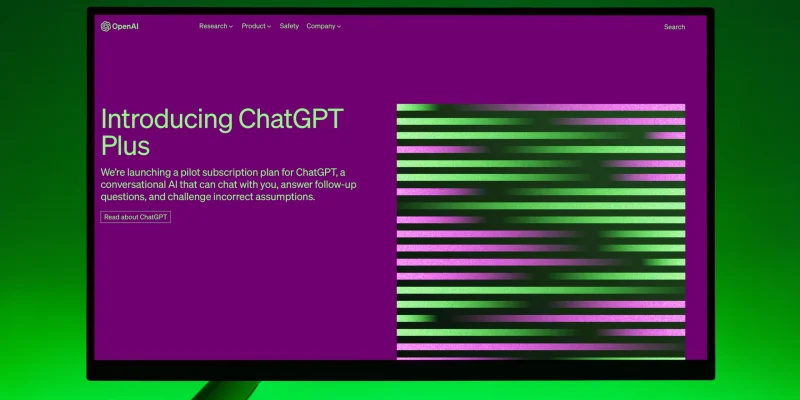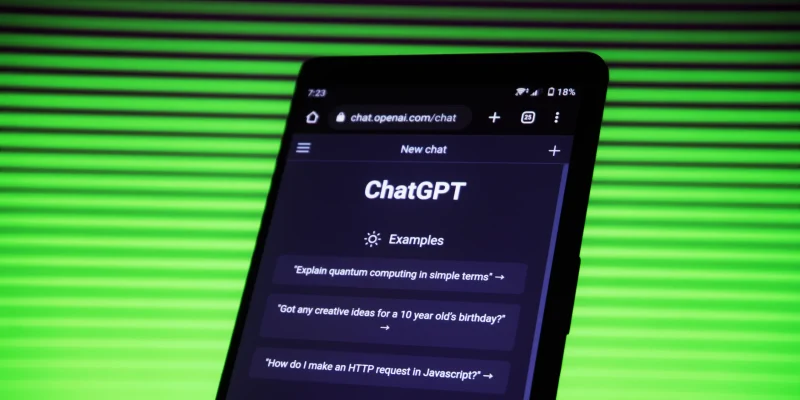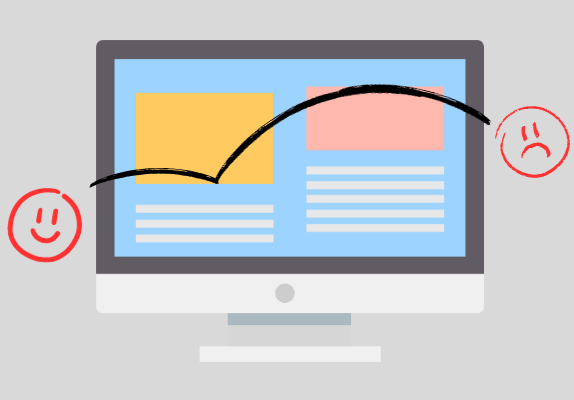ChatGPT is a language model that is among the fastest-growing consumer software applications in history. By now, it is no mystery what ChatGPT is and what it’s capable of.
ChatGPT is not only capable of holding a conversation, but it can also write out stories, plays, essays, answer test questions, solve maths questions, write poems, music, lyrics, etc. Some of the more notable capabilities include emulating a Linux system, playing simple games such as noughts and crosses and some guessing games, as well as simulation of ATM and chat rooms.
Remarkable as it may be, there is no end to the concern it raises among certain circles and people. Just as with AI art generators, writers express concern regarding ChatGPT. It has also been seen as problematic by educational systems.
Concerns rise not just because ChatGPT is an effective alternative for many fields and people, but moral concerns such as plagiarism and misinformation are another factor that is highly raised.
One such concern is the question of whether ChatGPT will ultimately take over web design and development. Before we answer that question, let’s take a quick look at ChatGPT.

What is ChatGPT?
ChatGPT is a chatbot developed by OpenAI and initially released on November 30, 2022. ChatGPT is built upon the GPT 3.5 and GPT 4 engine.
ChatGPT was fine-tuned by human trainers. During the initial stages, trainers played both human and AI responses. OpenAI now collects user data to train and fine-tune the service further. A feedback feature allows users to comment on the response they receive.
ChatGPT is trained in multiple programming languages. Software manuals, bulletin board systems and Wikipedia are some of the training sources of the chatbot.
Although ChatGPT has an API that filters offensive, racist, or sexist content, it is known to have produced sensitive content, and inflammatory statements.
What are ChatGPT's Limitations?
ChatGPT isn’t a perfect language model. It works very well in cases where the requirement is very clearly defined. For example, ChatGPT can solve mathematical equations somewhat better as compared to answering certain philosophical or technical questions.
There are clear exceptions to that as well. Even in mathematical calculations, ChatGPT doesn’t always provide the right answers. In some cases, it attempts to make assumptions for some data or method that it hasn’t learned yet. Hallucination is a commonly noted phenomena in ChatGPT like all large language models.
Moreover, ChatGPT doesn’t have updated information and doesn’t have much knowledge or data beyond September 2021. Although ChatGPT does have some sense of “memory”, it is limited to a small number of responses. ChatGPT understands the context of a single conversation, but isn’t able to retrieve anything beyond the topic of the previous conversations.

Can ChatGPT Create Websites?
ChatGPT cannot create websites. At least, as far as the entirety of web design and programming is concerned, it explicitly admits that it isn’t able to do so. The best it offers is guidance on how to create a website and what tools to use. It can also be used to write code.
But when we asked ChatGPT if it would create a website given the right capabilities, it admitted that it would definitely give it a try but the website won’t be a very professional website.
As such, although many people use the code generated by ChatGPT for their sites, it isn’t possible for ChatGPT at its current stage to be able to produce a functioning website.
That said, the possibility that ChatGPT could create websites all on its own cannot be overruled. In March 2023, OpenAI added support for a web browsing plugin to ChatGPT. With that, ChatGPT is expected to explore greater bounds.
It is already capable of producing good code, and with enough analysis and tuning, there may come a time when ChatGPT won’t need help to build websites.
Why ChatGPT Websites Would Never Be a Great Idea
Even if ChatGPT is able to produce websites and write perfect code, it is still unlikely that it would ever get the concept of ‘unique’.
With ample data fed into the system, it may be capable of building optimised designs but anything that requires thinking might ultimately fail. At the very least, it is safe to say that ChatGPT isn’t capable of building personalised designs.
What we need to consider is that as smart as ChatGPT may seem to the layman user, it has nothing of its own behind it. ChatGPT is just a language model, not AGI. It doesn’t possess the ability to understand complex user interests. At the same time, it cannot completely comprehend what the customer stands for.
As far as language models are concerned, without human intervention and support, anything they do is barely acceptable. ChatGPT is evolving rapidly and it might be able to do more things sooner than we expect but even in such cases, it would require a human to get the perfect results.
Will ChatGPT Take Over Web Design and Development?
As far as ‘taking over’ is concerned, a concept far too casually associated with AI, web design and development isn’t something that can be completely taken over by ChatGPT.
However, there are far too many variables to consider before this question can be answered. Even if ChatGPT can brilliantly perform all the technical and programming aspects of the website, it doesn’t possess the ability to ‘understand’ the users. And even by analysis of human behaviour and user preferences, only a rough evaluation can be made.
Those preferences may not be contemporary, in which case, any data that is obtained in such a way would be rendered useless over time.
Moderation on ChatGPT
Considering ChatGPT evolves to the point where it can craft web designs successfully, there’d still be too many security issues to feel easy about. As demonstrated by CyberArk researchers, ChatGPT is capable of creating polymorphic malware. It doesn’t take much effort by the attacker himself to evade security products while using the chatbot.
One of the many concerns about websites that have been common is user data. Where privacy and security is concerned, there are many ethical practices to consider. And while many practices may be legal or done after taking explicit consent of the user, what happends to the data that is obtained in such a way is entirely up to the organisation or, in this case, the chatbot.
Adversarial machine learning plays a crucial role in this aspect. What makes large language models difficult is that they can be taught to act in certain ways. As a result, it is easy to find ways to use them immorally or to create content that is inflammatory.

Misinformation
What needs to be taken into account here is not just the effect of human intervention on the chatbot but also its effect on the humans.
Just as much as human training influences the machine, the machine influences human thinking. With the use of large language models such as ChatGPT, it is hard to draw the line between the facts and falsehood.
Precisely because LLMs are known to cause “hallucination”, which is when LLMs provide plausible information that is factually false. This could result in the truth being overwritten by something false that people merely believe to be true.
For this reason, ChatGPT has been criticised in many sectors such as academia, cybersecurity, economics, education, financial markets, medicine, law, and more.
Conclusion
As some have said, the idea of dead internet theory seems much more realistic with the advent of LLMs.
Where web design and development are concerned, it needs to be realised that web design doesn’t entail simply writing a structure, it also contains aspects regarding its functionality, optimisation, and security.
ChatGPT may be able to build the framework of the website but how much of the rest is actually safe and good for use cannot be evaluated without a thorough analysis by a human.
On that note, while Google and other search engines are big on ‘adding value’ for the user, any content that consists of the possibility of hallucination is as good as useless.
We can safely conclude that ChatGPT does not yet possess the potential of creating web designs on its own. Even if it possessed such capabilities, the quality of the web design, its security, and credibility would likely be compromised.






